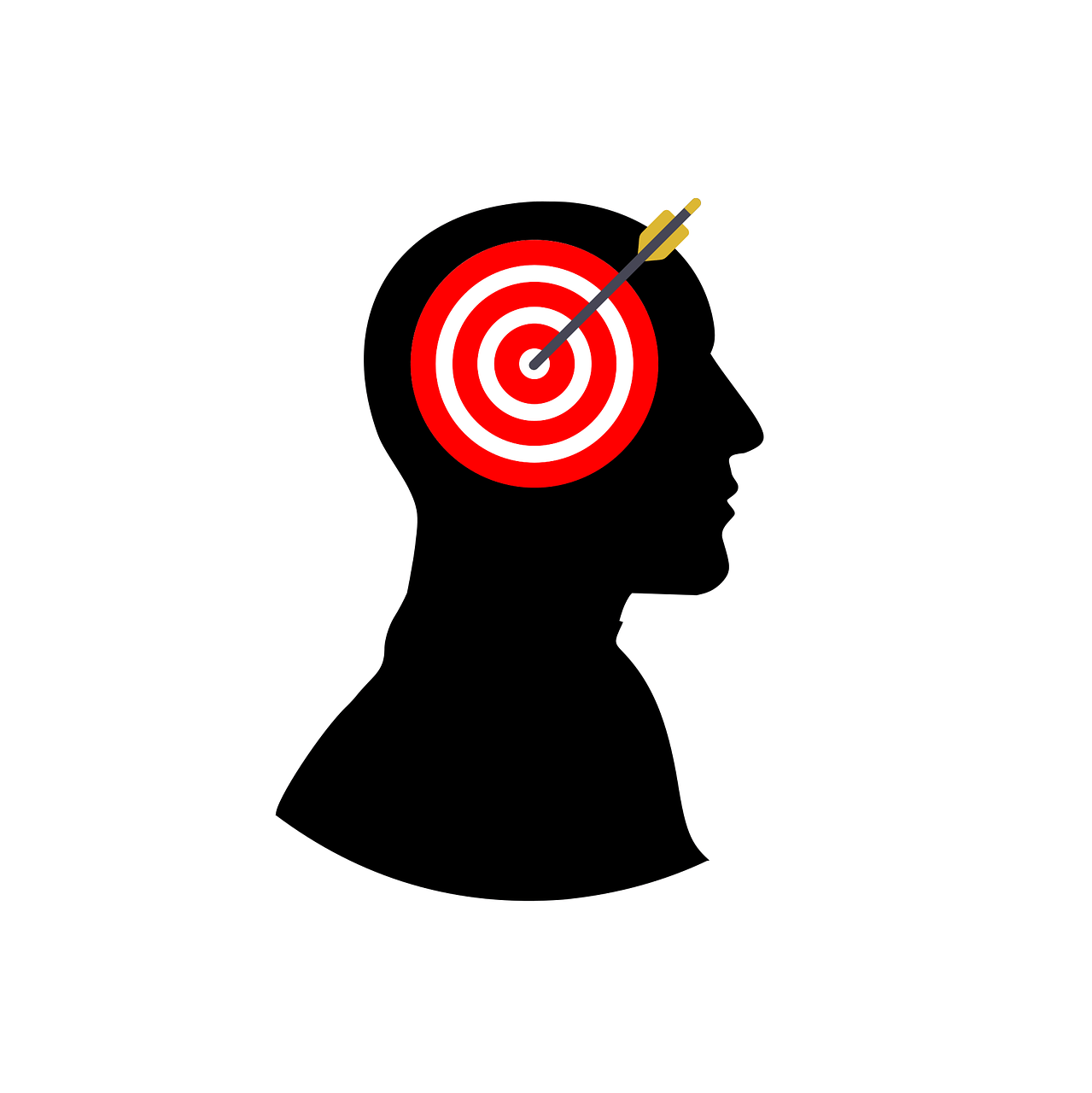
The Benefits Of Journaling For Emotional Balance And Clarity

Whether you’re juggling a demanding career, managing personal relationships, or simply trying to navigate the complexities of daily life, finding emotional balance and clarity can be a constant struggle. In a world that often feels overwhelming and fast-paced, it’s crucial to establish practices that promote self-care and allow you to process your thoughts and emotions. That’s where journaling steps in, offering an invaluable tool for introspection and self-discovery. By putting pen to paper, you embark on a journey of inner exploration that can help bring about emotional balance, boost clarity, and ultimately enhance your overall well-being.

1. Introduction to Journaling
What is journaling?
Journaling is the practice of writing down your thoughts, feelings, and experiences in a personal journal or diary. It is a form of self-expression and reflection that allows you to explore your inner thoughts and emotions in a safe and private space. Through journaling, you can gain clarity, develop self-awareness, and improve your overall well-being.
Brief history of journaling
The act of journaling has been around for centuries, with famous figures such as Anne Frank, Leonardo da Vinci, and Marie Curie known for their extensive journaling habits. Historically, journaling was used as a means of documenting important events, personal reflections, and even scientific discoveries. Today, journaling has evolved beyond its traditional purpose and is now recognized as a valuable tool for personal growth and emotional well-being.
Types of journaling
There are various types of journaling techniques that cater to different individuals and preferences. Some popular types include gratitude journaling, where you write down things you’re grateful for each day, dream journaling, where you record your dreams and try to analyze their meanings, and bullet journaling, a creative method of combining planning, organization, and self-reflection. Whether you prefer structured or freeform journaling, the important thing is to find a style that resonates with you and helps you achieve your goals.
2. Improving Emotional Well-being
Emotional release and catharsis
One of the primary benefits of journaling is its ability to provide an emotional release and catharsis. By putting your thoughts and emotions onto paper, you can unburden yourself from the weight of negative feelings. The act of writing allows you to process and release emotions in a safe and non-judgmental way, leading to a sense of relief and clarity.
Enhanced self-awareness
Journaling provides an opportunity for self-reflection, enabling you to gain deeper insights into your thoughts, emotions, and behaviors. Regularly writing down your experiences and analyzing them can help you develop a greater understanding of yourself, your values, and your motivations. This enhanced self-awareness can lead to personal growth, improved decision-making, and increased self-acceptance.
Recognizing patterns and triggers
Through journaling, you can identify patterns and triggers in your thoughts and emotions. By consistently recording your experiences, you may begin to notice recurring themes or situations that evoke certain reactions. This awareness allows you to pinpoint areas of your life that may need attention or changes, ultimately helping you to break free from negative patterns and create healthier habits.

3. Strengthening Cognitive Abilities
Improved problem-solving skills
Journaling can sharpen your problem-solving skills by providing a space to explore different perspectives and potential solutions. When you encounter a challenge, writing about it can help you clarify your thoughts, organize your ideas, and generate possible strategies. The act of writing engages your cognitive abilities, fostering creative thinking and encouraging you to consider alternative approaches to problem-solving.
Enhanced creativity and innovation
Engaging in regular journaling can spark your creativity and boost innovation. Writing freely and without constraints allows your mind to wander and explore new ideas. Often, unexpected connections between seemingly unrelated thoughts or experiences can emerge through the process of journaling. By capturing these insights, you can fuel your creativity and nurture an innovative mindset.
Heightened self-reflection and introspection
Journaling promotes self-reflection and introspection, enabling you to delve deeper into your thoughts and emotions. By dedicating time to reflect on your experiences, you gain a clearer understanding of your beliefs, values, and goals. This heightened self-reflection not only deepens your connection with yourself but also helps you navigate complex choices and make decisions that align with your authentic self.
4. Managing Stress and Anxiety
Reducing negative thoughts and rumination
Journaling serves as an effective tool for managing stress and anxiety by helping you express and release negative thoughts. Writing about your worries, fears, or frustrations allows you to externalize them, preventing them from becoming overwhelming. By acknowledging and examining these thoughts, you can gain a new perspective and reduce the impact of negative thinking patterns.
Increasing mindfulness and present moment awareness
Engaging in journaling encourages mindfulness and present moment awareness. As you write down your thoughts and experiences, you become more attuned to the present moment, focusing on the sensations, thoughts, and emotions that arise. By practicing mindfulness through journaling, you can cultivate a greater sense of calm, reduce stress, and increase your overall well-being.
Processing and organizing thoughts
Often, stress and anxiety stem from a jumbled and overwhelming stream of thoughts. Journaling provides a structured platform to process and organize your thoughts, allowing you to make sense of complex situations or feelings. As you write, you can identify the underlying causes of your stress and anxiety, highlight patterns, and find clarity. This process of organizing your thoughts can lead to a greater sense of control and peace of mind.

5. Promoting Emotional Clarity
Gaining perspective on emotions
Journaling provides a space to gain perspective on your emotions without judgment. By writing about your feelings, you can objectively observe and explore them from a detached standpoint. This allows you to have a clearer understanding of the emotions you’re experiencing, their intensity, and their triggers. This emotional clarity fosters a sense of emotional intelligence and promotes healthier emotional responses.
Identifying and expressing complex feelings
Sometimes, it can be challenging to express complex or nuanced emotions verbally. Journaling offers a safe outlet to explore and articulate these feelings. Through the act of writing, you can delve deep into the layers of your emotional landscape, uncovering hidden or suppressed emotions. By expressing these complex feelings in your journal, you can release them, leading to a greater sense of emotional balance and fulfillment.
Improved decision-making and goal-setting
When you have a clear understanding of your emotions, you are better equipped to make informed decisions and set meaningful goals. Journaling helps you evaluate the emotions underlying your choices and assess whether they align with your values and aspirations. By documenting your decision-making process and reflecting on the outcomes, you can refine your decision-making skills, set more intentional goals, and work towards a more fulfilling life.
6. Supporting Mental Health
Journaling as a therapeutic tool
Journaling has been widely recognized as a therapeutic tool for supporting mental health. Writing about your thoughts and emotions in a private journal can offer a sense of relief, provide an outlet for self-expression, and help you process traumatic experiences. It is often used in conjunction with therapy as a means of supplementing and reinforcing the healing process.
Reducing symptoms of depression and anxiety
Research has shown that journaling can be an effective tool in reducing symptoms of depression and anxiety. Regularly writing about negative emotions and traumatic experiences has been found to decrease the intensity of these symptoms. The act of journaling allows individuals to externalize their thoughts and emotions, gain perspective, and develop healthier coping mechanisms.
Alleviating trauma and PTSD
For individuals who have experienced trauma or suffer from post-traumatic stress disorder (PTSD), journaling can be a valuable tool in alleviating symptoms. Writing about traumatic experiences enables individuals to process and integrate the emotions associated with those events. By expressing themselves in a controlled and safe environment, individuals can begin to heal, reduce symptoms, and regain a sense of control over their lives.
7. Enhancing Self-Reflection and Personal Growth
Tracking personal progress and achievements
Journaling allows you to track your personal progress and celebrate your achievements over time. By regularly writing about your goals, aspirations, and milestones, you create a record of your growth journey. Reflecting on this progress can be incredibly motivating and reinforce your sense of self-esteem and accomplishment.
Identifying values, strengths, and weaknesses
Through the practice of journaling, you develop a deeper understanding of your values, strengths, and weaknesses. By reflecting on your experiences, you can identify patterns of behavior that align with your core values or may need adjustment. Journaling also provides a platform to recognize and appreciate your strengths while acknowledging areas for growth. This self-reflection fosters personal growth and empowers you to make positive changes in your life.
Setting and evaluating goals
Journaling is a powerful tool for setting and evaluating goals. By writing down your goals, breaking them down into actionable steps, and reflecting on your progress, you enhance your chances of success. Journaling helps you clarify your intentions, organize your thoughts, and hold yourself accountable. Regularly reviewing and updating your goals allows you to adapt, make necessary adjustments, and stay on track towards achieving them.
8. Building Resilience
Coping with setbacks and challenges
Journaling can help build resilience by providing a space to cope with setbacks and challenges. When faced with adversity, writing about your experiences allows you to process your emotions, gain perspective, and identify lessons learned. By acknowledging and examining your emotions honestly, you can develop resilience, bounce back from setbacks, and cultivate a positive mindset.
Developing a positive mindset
Positive affirmations, gratitude journaling, and focusing on positive aspects of your life are all techniques that can be incorporated into your journaling practice. By emphasizing the positive, you can shift your mindset towards optimism and gratitude. Cultivating a positive mindset through journaling reinforces resilience, increases your overall well-being, and helps you navigate difficulties with a more constructive outlook.
Finding meaning and purpose in life
Journaling can be a powerful tool for discovering and clarifying your sense of purpose and meaning in life. By writing about your values, passions, and aspirations, you gain insight into what brings you fulfillment and satisfaction. Journaling helps you connect with your deeper self, guiding you towards a life aligned with your purpose and values. This sense of meaning fosters resilience and supports your overall well-being.
9. Establishing Work-Life Balance
Creating boundaries and prioritizing self-care
Journaling can assist in establishing work-life balance by helping you create boundaries and prioritize self-care. Writing about your work-related stressors, time commitments, and personal needs allows you to identify areas where you may be sacrificing your well-being. By reflecting on these insights, you can set boundaries, carve out time for self-care, and create a healthier balance between work and personal life.
Reflecting on work-related stressors
Work-related stress can significantly impact overall well-being and productivity. Journaling provides a dedicated space to reflect on work-related stressors, identify their underlying causes, and explore potential solutions. By documenting your thoughts and emotions regarding work, you can gain clarity and make informed decisions to manage stress effectively.
Setting and reevaluating career goals
As priorities and aspirations change over time, journaling can help navigate career goals and aspirations. By recording your reflections and career ambitions, you create a roadmap that guides your professional development. Regularly reviewing and reevaluating these goals allows you to adapt to new opportunities and changes in your career trajectory, contributing to a sense of fulfillment and success.
10. Developing a Daily Journaling Practice
Establishing a routine and commitment
To fully experience the benefits of journaling, it is essential to establish a routine and commit to a regular practice. Designate a specific time each day or week to sit down with your journal and dedicate uninterrupted time for writing. Consistency is key, as it allows you to develop a habit and reap the long-term benefits of journaling.
Choosing the right journaling method
Experiment with different journaling methods to find the one that resonates with you. Whether it’s a traditional pen and paper journal, a digital journaling app, or a bullet journaling system, explore different options to discover what suits your preferences and needs. The key is to choose a method that feels comfortable and allows you to express yourself freely.
Overcoming writer’s block and resistance
Writer’s block or resistance can sometimes impede your journaling practice. When faced with this challenge, it can be helpful to start by writing about the block itself. Acknowledge any frustrations, fears, or self-imposed pressure that may be causing the resistance. The simple act of writing about these feelings can often break through the block and allow your thoughts and emotions to flow freely again.
In conclusion, journaling is a powerful practice that offers a multitude of benefits for emotional balance, clarity, and overall well-being. By engaging in regular writing, you can improve your emotional well-being, strengthen cognitive abilities, manage stress and anxiety, promote emotional clarity, support mental health, enhance self-reflection and personal growth, build resilience, establish work-life balance, and develop a daily journaling practice. So grab your journal and pen, or open your preferred digital platform, and start reaping the numerous advantages that journaling has to offer. Happy writing!





















